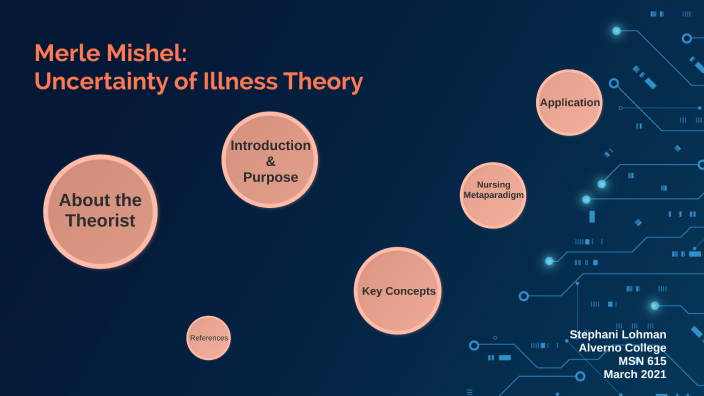Mishel’s Uncertainty in Illness Theory was developed by Merle Mishel late 1980s. The theory focuses on the strain and struggle when one gets an acute and chronic illness. It define uncertainty as the inability of individuals to accurately predict or control their health condition and its trajectory. The author noted that uncertainty occurs when a person cannot adequately categorize an illness-related event because of the lack of sufficient cues. Also, uncertainty can either be in the form of ambiguity, complexity, lack of or inconsistent information, or unpredictability. This theory is applicable to people of all ages and all phases of illness from initial symptoms to outcome. However, the theory is strongly supported by subjects who are experiencing the acute phase of illness or those that are in downward illness trajectory. The primary goal of the theory is providing ways a patient or nurse can adjust to the change.

Mishel’s Uncertainty in Illness Theory has not fully addressed the experience of living with continual, constant uncertainty in either a chronic illness or in an illness with a treatable acute phase and possible eventual recurrence. Cognitive schema is a major concept in the uncertainity theory and means the subjective interpretation of illness, treatment, and hospitalization that a person has.
The first assumption of the model is that uncertainity is a cognitive state and represents the inadequacy of an existing cognitive schema to support the interpretation of illness-related events. This theory also makes an assumption that uncertainity is an inherently neutral experience. This means that uncertainity is not desirable nor aversive until it is appraised as such. Moreover, the uncertainity in illness theory assumes that there is a linera and unidirectional relationship between illness events, uncertainty, appraisal, coping, and adaptation. It moves from situations promoting uncertainty toward adaptation.
